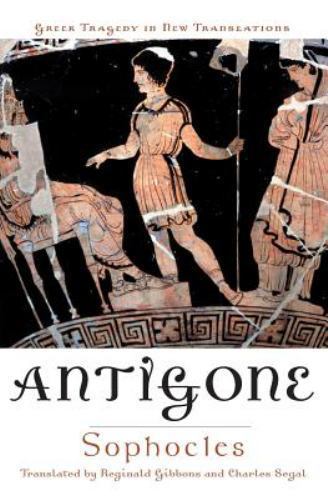Have you ever watched a movie or read a book where the plot felt so complex it left you utterly baffled? In truth, many classic works share this very quality. Today we’ll explore a classic ancient Greek drama—Sophocles’ Antigone. Though over two millennia old, its themes remain powerfully resonant, especially its exploration of family, faith, and power. Below, I’ll break down the plot in plain language so you can grasp its meaning effortlessly.
1. The Setting: A Family Feud
Let’s start with the backdrop. In ancient Greek mythology, there was a city called Thebes. Here, a bitter conflict erupted between two brothers: Eteocles and Polyneices. Battling for the throne of Thebes, they fought each other to the death. Sounds brutal, right?
Afterward, their uncle Creon ascended as Thebes’ new king. Creon made a decision: he deemed Eteocles a hero who protected the city and granted him a grand funeral. Polyneices, however, was branded a traitor for betraying the city. His body was left exposed, forbidden from burial by anyone. This was an extremely severe punishment in those times, for according to Greek beliefs, if a dead body was not properly cared for, the soul could not rest in peace.

2. Antigone’s Defiance: Family Above All
Now our protagonist takes center stage! Antigone, the sister of these two brothers, felt Creon’s decree was outrageous. Regardless of her brother’s actions, as his kin, she believed she had a duty to bury him. This stemmed not only from familial love but also from her conviction that it was the divine law.
So Antigone secretly went to Polynices’ body and scattered some earth over him. This simple act violated the king’s law. Soon, she was arrested.
3. Escalating Conflict: A Clash of Values
The dramatic climax unfolds as Creon brings Antigone before him, sparking a fierce debate.
- Creon’s Perspective
Creon insists that as king, his laws must be enforced. He declares: “I am the ruler. My duty is to uphold the state’s order. If I permit defiance of my commands, what authority would I retain?” - Antigone’s Counterargument
Antigone stands her ground, retorting: “Your laws are man-made, while my duty lies in promises to family and the gods. Even if you kill me, I will not abandon my convictions.”
This exchange reveals two utterly contrasting values: authority and rules versus faith and familial bonds. Who can say which is right or wrong?
4. Tragedy Strikes: A Chain of Catastrophes
When Creon heard Antigone’s defense, his fury only intensified. To assert his authority, he ordered Antigone to be imprisoned in a cave and buried alive. Yet this decision set off a chain reaction:
- Haemon’s Despair
Haemon, Creon’s son and Antigone’s fiancé, pleaded with his father to reconsider the execution. When he later rushed to the cave and found Antigone had hanged herself, his grief drove him to attempt Creon’s assassination. Failing, he ultimately took his own life. - Eurydice’s Collapse
Eurydice, Haemon’s mother and Creon’s wife, could not bear the news of her son’s death and took her own life at home.
Thus, a family once full of hope was transformed into utter tragedy. It can be said that Creon’s stubbornness and pride destroyed everything.
5. The Ending: Regret and Lessons
Finally, Creon stands alone in the empty palace, surrounded only by silence. He realizes he has committed an irreversible mistake, but it is too late. His wife and son have both passed away, and he himself is plunged into profound sorrow.
The entire play concludes with a profound statement: “Do not defy the will of the gods, nor disregard the importance of family.” This line encapsulates the core message of the story: no matter how powerful one may be, the force of morality and faith must never be ignored.
6. Summary: Why Antigone Remains Relevant Today
Antigone is not merely an ancient tale; it holds profound contemporary relevance. For instance:
- The Relationship Between the Individual and the Collective
The play explores how individuals should confront societal norms. When law conflicts with conscience, how should we choose? - The Price of Power
Creon’s experience warns us that the excessive exercise of power can lead to devastating consequences. - The Importance of Family
Regardless of changing times, family remains one of the most vital aspects of our lives.
In short, Antigone is a thought-provoking work. It teaches us that while upholding principles is crucial, we must also learn to listen to others’ perspectives to avoid irreparable losses stemming from stubbornness. May this article help you better appreciate this timeless classic!
